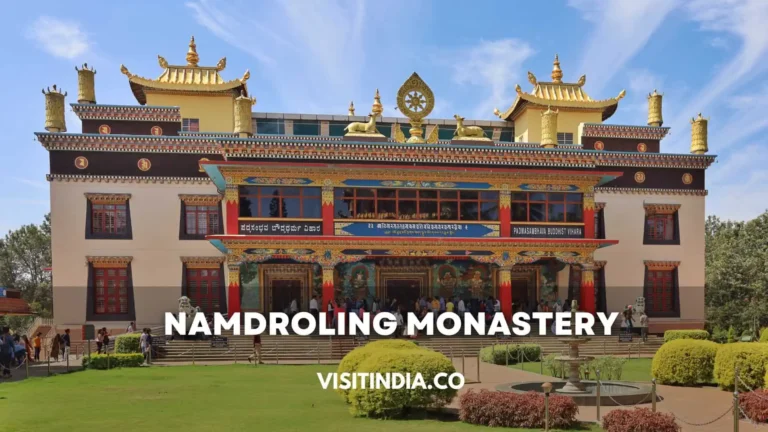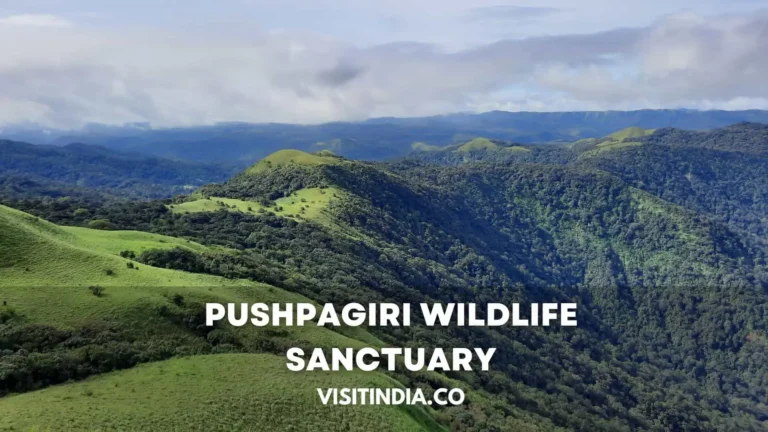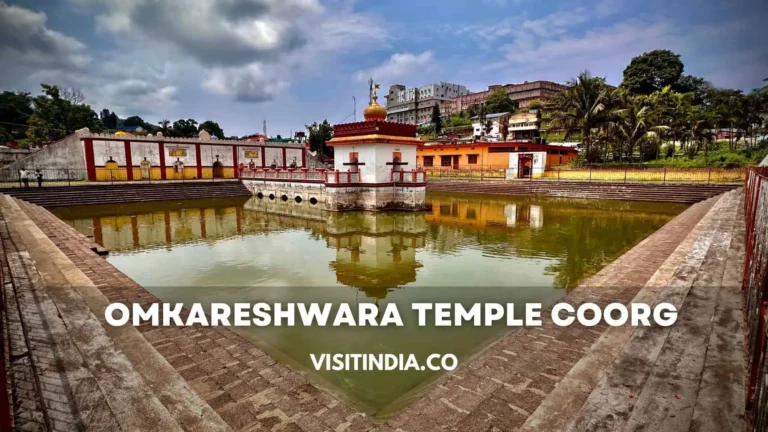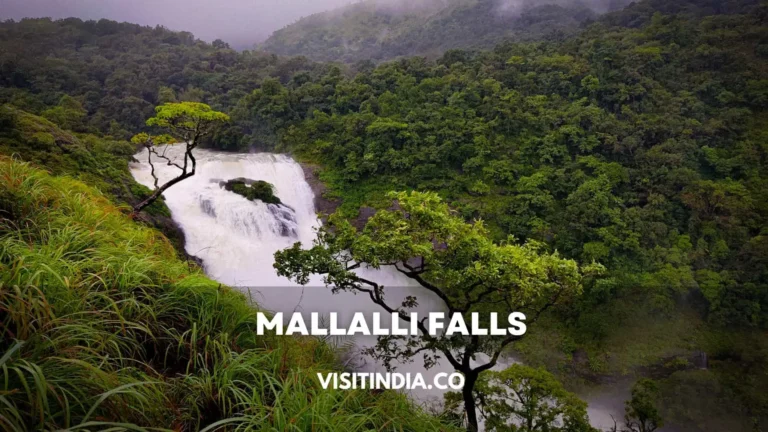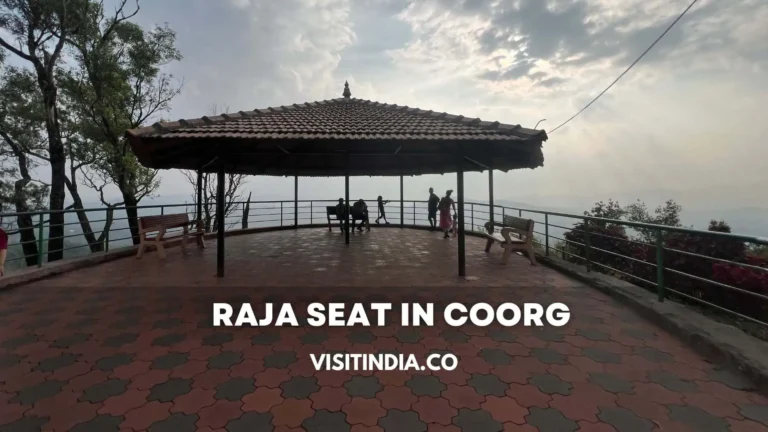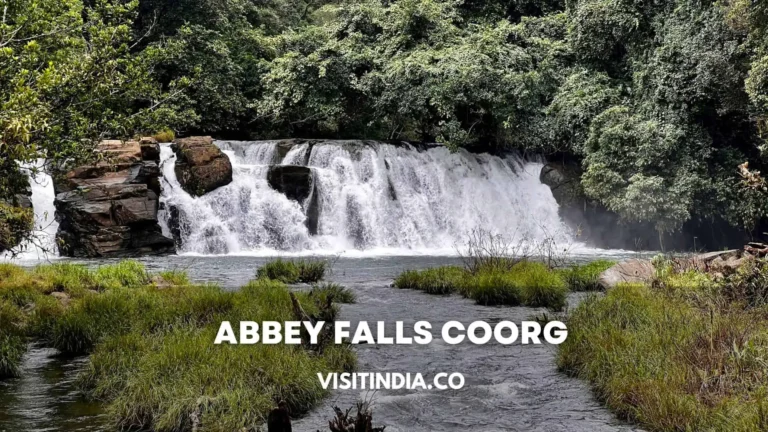Kambala Festival in Karnataka, History, Types, Schedule for 2024
Kambala Festival is a traditional buffalo race that takes place in the coastal districts of Karnataka, India. It is a celebration of the rural culture and the bond between humans and animals.
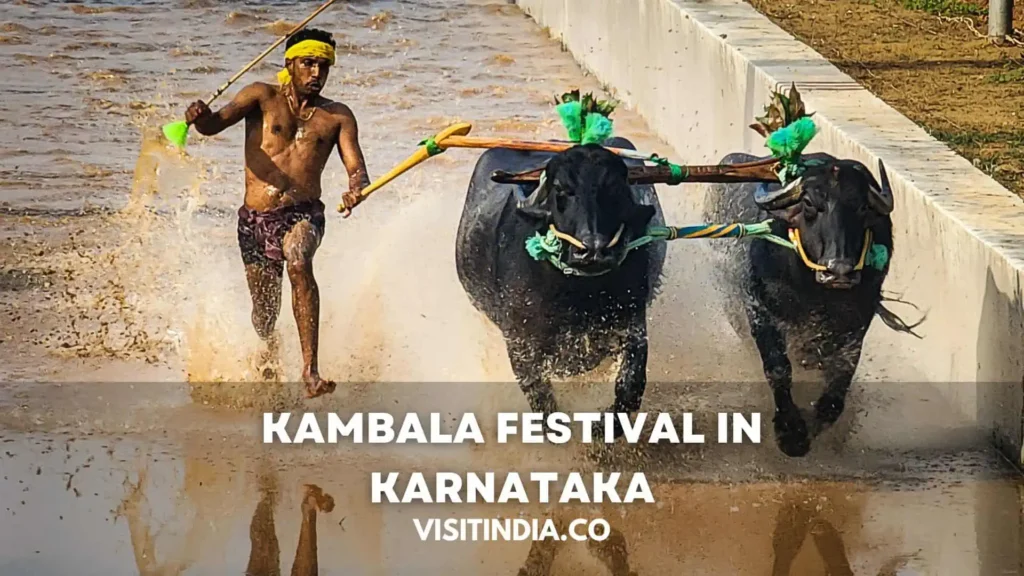
In this article, you will learn about the history, types, and schedule of Kambala Festival for 2024. You will also discover the major attractions and the significance of this unique and thrilling event.
Whether you are a sports enthusiast, a culture lover, or a curious traveler, you will find something interesting and exciting about Kambala Festival. Read on to find out more!
Consider reading: Discover the 15 Vibrant Festivals of Sikkim
Kambala Festival in Karnataka Dates in 2023 and 2024
| Name | Date | Location |
|---|---|---|
| Kakyapadavu Kambala | 18 November 2023 | Kakyapadavu, Bantwala, Mangalore |
| Bengaluru Kambala | 25 November 2023 | Palace Grounds, Bengaluru |
| Moodubidire Kambala | 2 December 2023 | Moodubidire, Mangalore |
| Baaradi Kambala | 9 December 2023 | Baaradi beedu, Karkala, Udupi |
| Naringana Kambala | 17 December 2023 | Naringana, Bantwala (Near Deralakatte) |
| Mulki Arasu Kambala | 24 December 2023 | Mulki Arasu, Mangalore |
| Mangalore Kambala | 30 December 2023 | Mangalore Bangrakooluru |
| Miyaru Kambala | 6 January 2024 | Miyaru, Karkala, Udupi |
| Ballamanja Kambala | 7 January 2024 | Ballamanja |
| Hokkadigoli Kambala | 13 January 2024 | Hokkadigoli, near Venoor, Mangalore |
| Adve Kambala | 20 January 2024 | Adve Nandikooru, Padubidri, Udupi |
| Putturu Kambala | 27 January 2024 | Putturu, Mangalore |
| Aikala Kambala | 3 February 2024 | Aikala, Kinnigoli, Mangalore |
| Jeppu Kambala | 10 February 2024 | Jeppu (Jeppina Mogaru), Mangalore |
| Vamanjoor Kambala | 17 February 2024 | Vamanjoor, Mangalore |
| Katapadi Kambala | 24 February 2024 | Katapadi, Udupi |
| Bantwala Kambala | 2 March 2024 | Bantwala, Mangalore |
| Bangadi Kambala | 9 March 2024 | Bangadi, Belthangady, Mangalore |
| Venur Kambala | 16 March 2024 | Venur, Karkala, Udupi |
| Uppinangadi Kambala | 23 March 2024 | Uppinangadi, Mangalore |
| Panapila Kambala | 30 March 2024 | Panapila, Mangalore |
| Balkunje Kambala | 6 April 2024 | Balkunje, Mangalore |
| Gurupura Kambala | 13 April 2024 | Gurupura, Mangalore |
What is the Kambala Festival?
The Kambala festival is a unique and vibrant celebration that takes place in the coastal regions of Karnataka, India. It is a traditional festival deeply rooted in the farming culture of the area. The festival is also known as “Devara Kambala” or “Gods Kambala” as it is associated with the Manjunatha Temple situated in Kadri Mangalore.
Legend has it that the Kambala festival was patronized by the kings of the Alupa dynasty who once ruled over Mangalore. For this reason, it is also known as “Arasu Kambala” or the kings’ Kambala. Apart from the kings, the festival was also patronized by famous households in Mangalore.
The festival is most popular in Mangalore and other southern coastal regions and remote villages of Karnataka. Districts such as Dakshina Kannada and Udupi celebrate this festival with much fanfare. The celebrations include a grand procession where over 150 pairs of buffalos, specially groomed for the festival, are paraded.
The Kambala festival holds great cultural significance and is deeply rooted in spirituality. It kicks off with a prayer to Lord Shiva at the Kadri Manjunatha Temple. The festival also includes the famous buffalo race, a renowned and peculiar sport among the farming community in Karnataka.
- The Kambala festival takes place in the coastal regions of Karnataka, India.
- It is deeply rooted in the farming culture of the area.
- The festival is associated with the Manjunatha Temple in Kadri Mangalore.
- It was patronized by the kings of the Alupa dynasty and famous households in Mangalore.
- Over 150 pairs of buffalos are specially groomed for the festival.
- The festival includes a grand procession and the famous buffalo race.
- It is deeply rooted in spirituality and begins with a prayer to Lord Shiva.
So, what makes the Kambala festival so special? Let’s dive deeper into the traditions, activities, and spiritual aspects of this extraordinary celebration.
Why is the Kambala Festival celebrated?
The Kambala Festival is a grand celebration deeply rooted in the cultural and spiritual traditions of the coastal regions of Karnataka, India. This unique festival holds immense significance for the farming community and has been celebrated for centuries. Let’s explore the reasons behind the celebration of this vibrant event:
- Historical Significance: The Kambala Festival has a rich historical background that dates back to the times of the Alupa dynasty. It was patronized by the kings of this dynasty, who once ruled over Mangalore. Due to this association, the festival is also known as Arasu Kambala or the king’s Kambala.
- Religious Importance: The festival is closely linked with the Manjunatha Temple located in Kadri Mangalore. Known as Devara Kambala or God’s Kambala, the festival begins with a prayer to Lord Shiva at this sacred temple. The spiritual aspect of the festival enhances its significance for the local community.
- Cultural Celebration: Kambala is not just a religious event but also a celebration of the region’s rich cultural heritage. The festival brings together people from different communities, showcasing their traditional attire, music, dance, and local cuisine. It serves as a platform to preserve and promote the cultural identity of the coastal Karnataka region.
- Harvest Season: The timing of the Kambala Festival, which starts in November and lasts until March, coincides with the harvest season in Dakshina Kannada district. It is a time for farmers to rejoice and express gratitude for a bountiful harvest. The festival is a way to celebrate the hard work and dedication of the farming community.
- Sporting Tradition: The highlight of the Kambala Festival is the traditional buffalo race, a unique and thrilling sport that has been practiced for generations. This sport showcases the strength, agility, and bond between the buffalo and their handlers. The race is not only an exciting spectacle but also a testament to the farming community’s close connection with their livestock.
The Kambala Festival is a joyful amalgamation of history, spirituality, culture, and sport. It celebrates the traditions and contributions of the farming community while providing a platform for cultural exchange and community bonding.
History of Kambala, Karnataka
The Kambala festival has a rich historical background, dating back to ancient times. It originated from the ancient farming practices in Karnataka, where buffalo races were organized to thank the gods for a bountiful harvest and to entertain the farming community. Over the centuries, the festival evolved into the buffalocentric event we know today.
The festival is deeply ingrained in the cultural fabric of Karnataka. Traditionally, it commences in November, creating a wave of excitement that echoes through the coastal regions of the state, particularly in Mangalore.
The Kambala festival holds not only a sport but also a cultural significance. It fosters a sense of community spirit and unity among the farming community. The event brings together people from different communities to showcase their traditional attire, music, dance, and local cuisine.
To preserve the historical records of the festival and improve the experience of spectators and participants, a dedicated website is being developed for the Kambala races. The website will provide live updates, maintain records for all races, and include a section to record the performance of jockeys and buffaloes.
The Kambala festival is a celebration deeply rooted in the traditions and contributions of the farming community in Karnataka. It is a joyful amalgamation of history, spirituality, culture, and sport, creating a platform for cultural exchange and community bonding.
Kambala and the Farming Community
The Kambala festival holds deep significance for the farming community in coastal Karnataka. It is more than just a sport; it is a celebration of their cultural heritage and farming traditions. The festival brings together farmers from different communities, showcasing their traditional attire, music, dance, and local cuisine. Here are a few key highlights:
- Ancient Roots: The Kambala festival originated from ancient farming practices where buffalo races were organized to thank the gods for a bountiful harvest. Over time, it evolved into the buffalo-centric event we know today.
- Unique Sporting Spectacle: The Kambala festival is known for its traditional buffalo race, which is a renowned and peculiar sport among the farming community in Karnataka. More than 150 pairs of buffalos are specially groomed for the festival, adding to the excitement and thrill of the event.
- Community Bonding: The festival fosters a strong sense of community spirit and unity among the farming community. It is a time for them to come together, celebrate their hard work, and exchange knowledge and experiences.
- Preserving Cultural Heritage: Kambala serves as a platform for preserving historical records and traditions. To enhance the experience of spectators and participants, a dedicated website is being developed for the Kambala races. This website will provide live updates, maintain records for all races, and include a section to record the performance of jockeys and buffalos.
The Kambala festival is a joyous amalgamation of history, spirituality, culture, and sport. It not only brings excitement to the coastal regions of Karnataka, particularly in Mangalore but also serves as a platform for cultural exchange and community bonding. So, join us in celebrating the rich traditions and contributions of the farming community at the vibrant Kambala festival.
Types of Kambalas
At the Kambala festival, various types of Kambalas showcase the unique skills and traditions of the farming community. Each type of Kambala has its significance and style of racing. Here are the different types of Kambalas:
- Pookere Kambala: In this type of Kambala, the buffaloes are tied to a single plow, and the race is a straight dash. It is a test of speed and agility as the buffaloes race through the muddy tracks.
- Baare Kambala: This Kambala involves two pairs of buffaloes competing side by side. The buffaloes are tied to a wooden plank, and the race is a thrilling display of strength and teamwork.
These different types of Kambalas add variety and excitement to the festival, showcasing the unique abilities of the buffaloes and the skill of the handlers.
Facts about Kambala Races
- Kambala races are held during the Kambala season, which extends from November to March.
- Over 45 races occur annually, organized by Kambala samithis comprising 18 associations.
- Races are not only held in prominent locations but also remote villages, contributing to the festival’s widespread appeal.
The Kambala festival celebrates the heritage and traditions of the farming community, providing a platform for cultural exchange and community bonding. The various types of Kambalas add to the excitement and spectacle of the event, showcasing the unique skills of the buffaloes and the farmers.
How is the Festival Celebrated?
The Kambala Festival in Karnataka, India is a vibrant celebration that combines tradition, sport, and community spirit. Let’s take a closer look at how this unique event is celebrated:
- Buffalo Racing: The highlight of the Kambala Festival is the traditional buffalo race. Farmers participate in this exhilarating sport where they sprint along muddy paddy fields, guided by their specially trained buffalo pairs. The races are filled with adrenaline and excitement, showcasing the strength and agility of both the farmers and their buffalos.
- Colorful Attire: During the Kambala Festival, participants and spectators adorn themselves in traditional attire, adding a splash of color and elegance to the festivities. It’s a visual treat to witness the farmers proudly showcasing their cultural heritage through their vibrant clothing.
- Music and Dance: The Kambala Festival is not just about racing, it’s also a celebration of arts and culture. Local musicians and dancers perform traditional tunes and dance forms, adding a lively and joyful atmosphere to the event. The rhythmic beats and graceful movements reflect the rich heritage of the farming community.
- Local Cuisine: In addition to the exhilarating races and cultural performances, the Kambala Festival is a gastronomic delight. Traditional dishes made from locally sourced ingredients are served, offering a taste of the authentic flavors of Karnataka. From savory delicacies to sweet treats, the festival showcases the diverse and delicious culinary traditions of the region.
- Community Bonding: The Kambala Festival is more than just a sporting event; it’s a time for the farming community to come together and strengthen their bonds. Farmers from different communities gather to celebrate their hard work, share their knowledge and experiences, and forge new friendships. The festival fosters a sense of unity and camaraderie among the participants and the spectators.
The Kambala Festival is a unique blend of history, culture, and sport. Through buffalo racing, colorful attire, music and dance performances, delectable cuisine, and community bonding, the festival creates an atmosphere of joy and celebration.
It serves as a platform for the farming community to showcase their traditions and skills while bringing together people from all walks of life to witness and appreciate this wonderful celebration.
Final Thoughts on Kambala Festival in Karnataka
You have just read about the Kambala Festival, a traditional buffalo race that showcases the rural culture and the bond between humans and animals in Karnataka. You have learned about the history, types, and schedule of this unique and thrilling event for 2024. You have also discovered the major attractions and the significance of this festival that attracts thousands of spectators every year.
If you are looking for a different and exciting experience, you should definitely plan to visit Karnataka during the Kambala season and witness this spectacular sport for yourself. Kambala Festival is a celebration of life, culture, and nature that you don’t want to miss!
FAQs on Kambala Festival in Karnataka
Why is Kambala festival celebrated?
Kambala festival is celebrated as a thanksgiving ritual to Lord Kadri Manjunatha, an incarnation of Hindu God Shiva, for a bountiful harvest. Held annually post-harvest, this vibrant festivity symbolizes farmers’ gratitude for the year’s yield and seeks blessings for future prosperity.
What is Kambala famous for?
Kambala is famous for being a traditional buffalo race in Karnataka, India, celebrated with grandeur by the Tuluva community. As a significant cultural event, it garners immense local participation and tourist interest for its vibrant display of speed and spirit in the region’s rich agrarian traditions.
Which animal is used in Kambala festival?
In the Kambala festival of Karnataka, India, the buffalo is the traditional animal used in races. This cultural event features buffaloes racing through slushy paddy fields, which is a significant aspect of local heritage and agriculture-related festivities.
Is Kambala and Jallikattu same?
Kambala and Jallikattu are not the same; they are distinct traditional sports of India. While Jallikattu, part of Tamil Nadu’s Pongal celebrations, involves bull-taming, Kambala is a buffalo race occurring in Karnataka. Despite both showcasing human-animal connections, they demonstrate unique cultural practices of their respective regions.
